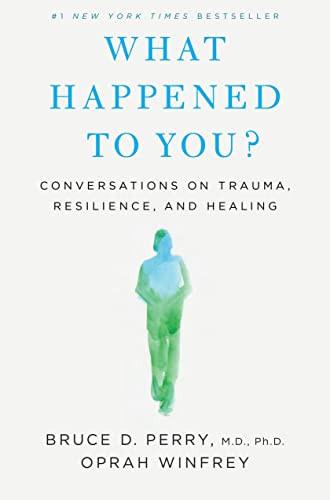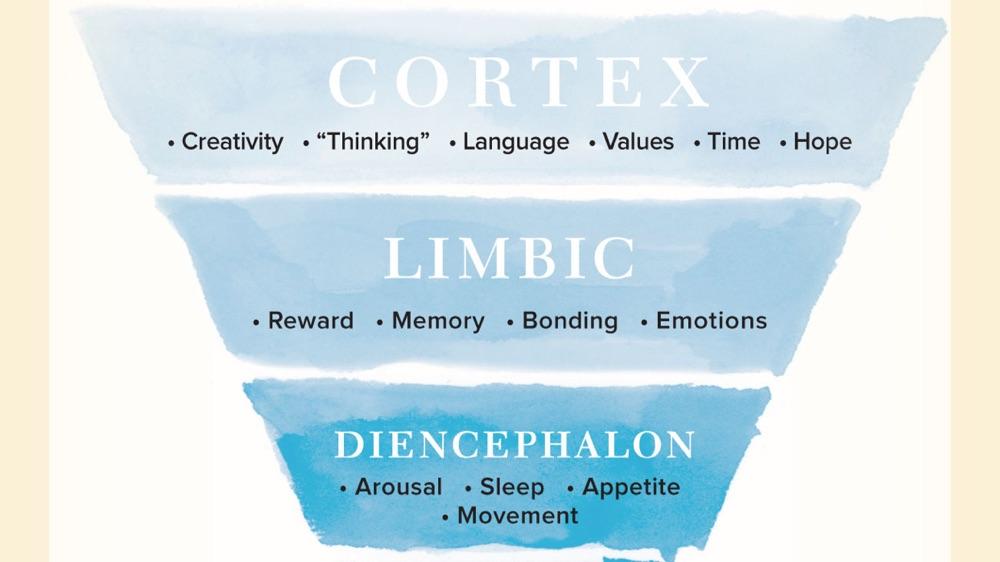Andrei Hodoroaga's Key Ideas from What Happened to You?
by Oprah Winfrey, Bruce D. Perry
Ideas, facts & insights covering these topics:
11 ideas
·24.2K reads
113
4
Explore the World's Best Ideas
Join today and uncover 100+ curated journeys from 50+ topics. Unlock access to our mobile app with extensive features.
About the Book
The book is structured as a conversation between Oprah and Dr. Bruce Perry. Oprah mostly asks questions, while Dr. Perry brings the more scientific explanations behind trauma, but they both share their interactions with people affected by trauma.
It focuses on the fact that a person’s behavior is shaped by the traumatic events they experienced. If we understand this, then we can be more empathetic toward the people around us, shifting our perspective from “What’s wrong with this person?” to “What happened to this person?”
266
3.2K reads
Main Points
A few main points from the book are:
- connectedness and forming meaningful relationships is one of the most important factors for healing from trauma
- regulating ourselves is essential for well-being. This means practicing any sort of sport, art, listening to music, etc.
- every experience a child has will have an effect on them: it is essential for a child to be loved and cared for, while being transmitted as little generational trauma as possible
282
3.05K reads
A Model Of The Brain
A key part in understanding how trauma affects a person is the way their brain experiences a new event. In a simplified explanation, everything we experience passes through more levels of the brain in a sequential way:
- the brainstem manages vital functions such breathing, heart rate, and temperature
- the diencephalon handles things like arousal, sleep, and appetite
- the limbic system is involved in our behavioral and emotional responses
- the cortex mediates the most uniquely “human” functions such as speech and language, cognition, and the capacity to reflect on the past and envision the future.
313
2.63K reads
Impact of Trauma on Brain
Take as example the story of a military veteran suffering from severe PTSD, taking minutes to recover from hearing the sound of a louder motorcycle that his brain associated with gunshot sounds.
Dr. Perry explains that the reason behind this behavior is the sequential processing of the brain: the sound of the motorcycle is first processed by the brainstem, which developed to associate these kind of events with something potentially deadly. This causes the other parts of the brain to temporarily “shut down”, and only reactivating the cortex after a few minutes, when he recovers.
257
2.26K reads
Unseen Impact of Trauma
The functioning of the brain depends on the state we are in. When you are calm, you are using the “smartest” part of the brain (the cortex), whereas if you feel threatened, the “lower parts” of the brain take over, shutting down the cortex.
And the situations we feel stressed in depend on our past experiences, how we were treated as children, essentially our trauma.
This means that a traumatized child might have a teacher that resembles her abusive father, so her performance might be impacted just because she feels fearful in this class (without knowing why).
276
2.1K reads
The Effects of Stress
Even though moderate stress can be beneficial (such as in exercise), being put through high levels of stress is the main cause of trauma for many people (e.g. having abusive or missing parents). There are 3 categories of people:
- sensitive: they get into a state of fear even from daily challenges, and even terror from moderate levels of stress
- resilient: they do not feel fear unless experiencing high levels of stress
- neurotypical: their response is proportional to the stress
267
1.99K reads
Same Patterns Everywhere
A counterintuitive idea is that a traumatized person will seek people similar to the ones that hurt them in the past. “It’s the same type of person continually showing up in their life. They might arrive in a different package—it might be a boss or a domineering friend.”
People look for predictable responses from the world. Predictable might mean punished, excluded, minimized. Even though their worldview is chaotic, they look for evidence that it is right, such as “I’m going to get kicked out of this class” or “I don’t belong here”.
288
1.91K reads
Traditional Healing
For most of our species’ history, we have been living in small intergenerational groups. It is safe to assume that our ancestors experienced trauma-related problems: anxiety, depression, sleep disruptions. Their methods of healing were:
- connecting to the clan and the natural world
- regulating rhythm through dance, drumming, and song
- a set of beliefs and values that helped them make sense of trauma
- natural hallucinogens taken under a healer’s supervision
270
1.83K reads
How Children Should Be Treated
Taking inspirations from our ancestors, our children should grow surrounded by loving adults, each having a different set of qualities for the different needs of the child.
In school, children should be allowed to play and not be forbidden to touch each other, as touch encourages connection.
Teachers should understand that children rocking, chewing gum, daydreaming, or listening to music might just be trying to regulate themselves.
259
1.74K reads
There is a direct relationship between a person’s degree of social isolation and their risk for physical and mental health problems. But when you do have connectedness, you have built-in buffers for whatever stress or distress you experience.
BRUCE D. PERRY
273
1.8K reads
Healing
It’s important to understand that the old pathways in the brain are not simply replaced by new ones. They will always be there, but the goal should be to replace them with new ones.
Ideally, a child should experience just so much stress so that they become a resilient person. But a sensitive person has an opportunity to build strength and resilience through their healing journey.
”The journey can create post-traumatic wisdom.”
270
1.74K reads
IDEAS CURATED BY
CURATOR'S NOTE
This is the first book that I’ve read on trauma. I found it pretty good.
“
Curious about different takes? Check out our What Happened to You? Summary book page to explore multiple unique summaries written by Deepstash users.
Different Perspectives Curated by Others from What Happened to You?
Curious about different takes? Check out our book page to explore multiple unique summaries written by Deepstash curators:
1 idea
6 ideas
Iz Zi's Key Ideas from What Happened to You?
Oprah Winfrey
10 ideas
Tara Varagani's Key Ideas from What Happened to You?
Oprah Winfrey
Discover Key Ideas from Books on Similar Topics
11 ideas
The Body Keeps the Score
Bessel van der Kolk
5 ideas
The Four Agreements
Don Miguel Ruiz, Janet Mills
7 ideas
The Four Agreements
Don Miguel Ruiz, Janet Mills
Read & Learn
20x Faster
without
deepstash
with
deepstash
with
deepstash
Personalized microlearning
—
100+ Learning Journeys
—
Access to 200,000+ ideas
—
Access to the mobile app
—
Unlimited idea saving
—
—
Unlimited history
—
—
Unlimited listening to ideas
—
—
Downloading & offline access
—
—
Supercharge your mind with one idea per day
Enter your email and spend 1 minute every day to learn something new.
I agree to receive email updates





